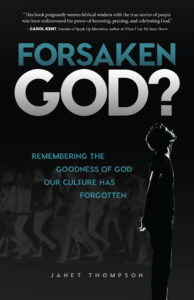AS MY HUSBAND AND I drove through our neighborhood the weekend before Thanksgiving, we saw people out in their yards, already putting up Christmas lights and decorations.
“People are certainly starting on Christmas early,” I said.
“They sure are,” my husband responded. “I remember when people didn’t put up Christmas decorations until a couple of weeks before Christmas.”
“Then it became right after Thanksgiving. Now it’s after Halloween—before Thanksgiving,” I reflected. “People just can’t wait. I guess it has something to do with coming out of the pandemic. Everyone needs a little Christmas.”
Being of the old school, our first thoughts were to wonder if people were overlooking Thanksgiving in a rush to Christmas. But later that week as I reflected on it further, something hit me.
What hit me was a scripture: Psalm 100:4. “Enter into his gates with Thanksgiving and into his courts with praise.”
God’s Word was telling me to enter His gates with thanksgiving. In other words, God was saying thanksgiving provides an entryway into His presence. And, as Christians, what do we want to experience at Christmas? God’s presence!
Thanksgiving is the beginning of the holiday season, and as we enter this season by giving thanks at Thanksgiving, we are also entering into God’s presence where we can more fully experience the holiness of Christmas in the days ahead.
All of a sudden, the holiday season began to fit together in my mind in a whole new way. Perhaps Thanksgiving can, after all, be the beginning of Christmas. For when we spend the day in thanksgiving to God for the blessings He has given us, we can be preparing our hearts for what lies ahead when we celebrate the birth of the Christ child.
For many of us, Thanksgiving is all about getting together with family and eating turkey. Yes, we will start it off with a prayer of thanks, and many of us come up with a creative way for family members to share what they are thankful for. But as we lift our hearts to God in thanksgiving and worship, it can actually be much more. It can become a way to enter into the advent season to prepare our hearts for the worship of the king.
So if we are seeing a Thanksgiving rush to Christmas, perhaps we can use it to make both of these holidays more meaningful. They are still separate holidays, but the one prepares us for the other. We are leaving the ghosts of Halloween behind and lifting up God’s name in praise and thanksgiving as we enter into a time of celebration and worship for God’s holy gift to us, the birth of His son Jesus, who came to save us from the darkness of this world so we could live with Him in eternity.
“Enter into his gates with thanksgiving and into his gates with praise. Be thankful to Him, and bless His name. For the Lord is good; His mercy is everlasting, and His truth endures to all generations.” Psalm 100:3-5













